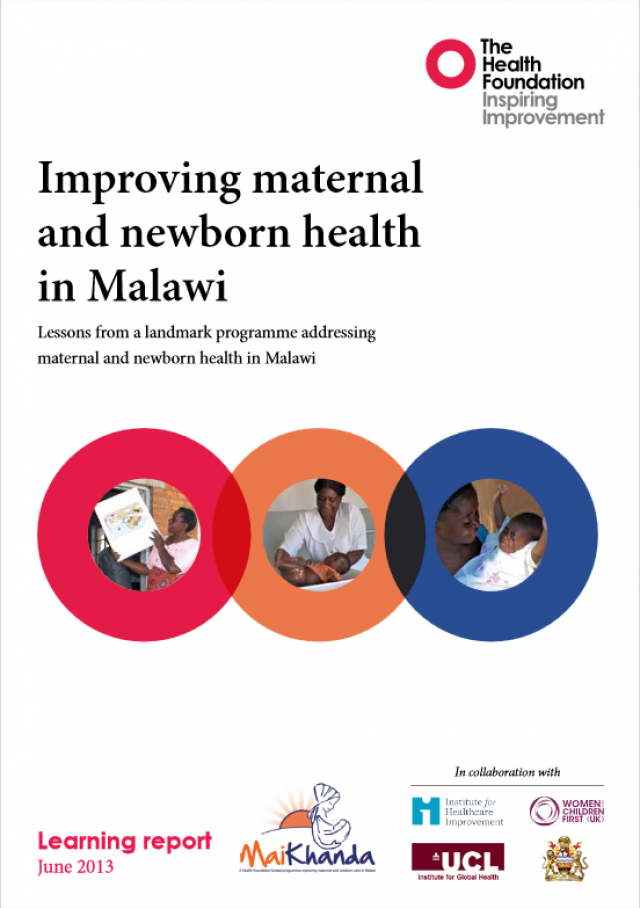Improving maternal and newborn health in Malawi Lessons from a landmark programme addressing maternal and newborn health in Malawi
June 2013

Key points
- The programme achieved a 16% reduction in perinatal mortality and a 22% reduction in neonatal mortality.
- In the second half of the programme the intervention was strengthened, and then achieved an impressive 28% reduction in neonatal mortality.
- On the secondary outcomes, the programme achieved a 33% significant effect on late neonatal mortality.
- The evaluation has shown that efforts to reduce newborn deaths can be more effective when we work simultaneously with healthcare systems and the communities they serve.
- The programme did not achieve a significant reduction in maternal mortality, probably because of the complexity of events surrounding the transport of mothers from their communities and provision of safe care at the healthcare facilities.
Malawi has one of the highest maternal mortality rates in Africa and a high rate of neonatal mortality. Although there is growing evidence of a trend towards a lower maternal mortality rate, the country is unlikely to meet its ambitious target to achieve the Millennium Development Goal (MDG) for a reduction in maternal mortality by 2015.
While Malawi may meet its target for reductions in child mortality, neonatal mortality lags behind.
The MaiKhanda programme
In 2006, we launched a five year programme with a consortium of international experts. MaiKhanda – which means ‘mother and baby’ in Chichewa – aimed to reduce by 30% the number of maternal and neonatal deaths in the Lilongwe, Kasungu and Salima districts of Malawi, working within the strategy already established by the Malawi Ministry of Health’s roadmap for maternal health.
The four approaches were:
- community mobilisation only
- healthcare facility improvements only
- a combination of community mobilisation and healthcare facility improvements
- no intervention (the control group).
The programme was innovative in its ambition to combine two large-scale interventions:
- a community mobilisation intervention, using a participatory action group cycle focused on women’s groups that had shown some promising evidence of effectiveness from international studies
- a quality improvement intervention, working first in 9 hospitals that provide comprehensive emergency obstetric care, and later in 29 health centres that provide some elements of basic emergency obstetric care.
Key partners
Three organisations were invited to form a consortium to design and deliver the programme, working in partnership with University College London, which would deliver an independent evaluation:
- Institute for Healthcare Improvement
- Women and Children First (UK)
- Liverpool School of Tropical Medicine, with administrative support from Liverpool Associates in Tropical Health
Over 1,000 newborn lives saved
As MaiKhanda moves into its next phase, the independent evaluation estimates that over 1,000 newborn lives have been saved so far.
Work with us
We look for talented and passionate individuals as everyone at the Health Foundation has an important role to play.
View current vacanciesThe Q community
Q is an initiative connecting people with improvement expertise across the UK.
Find out more

